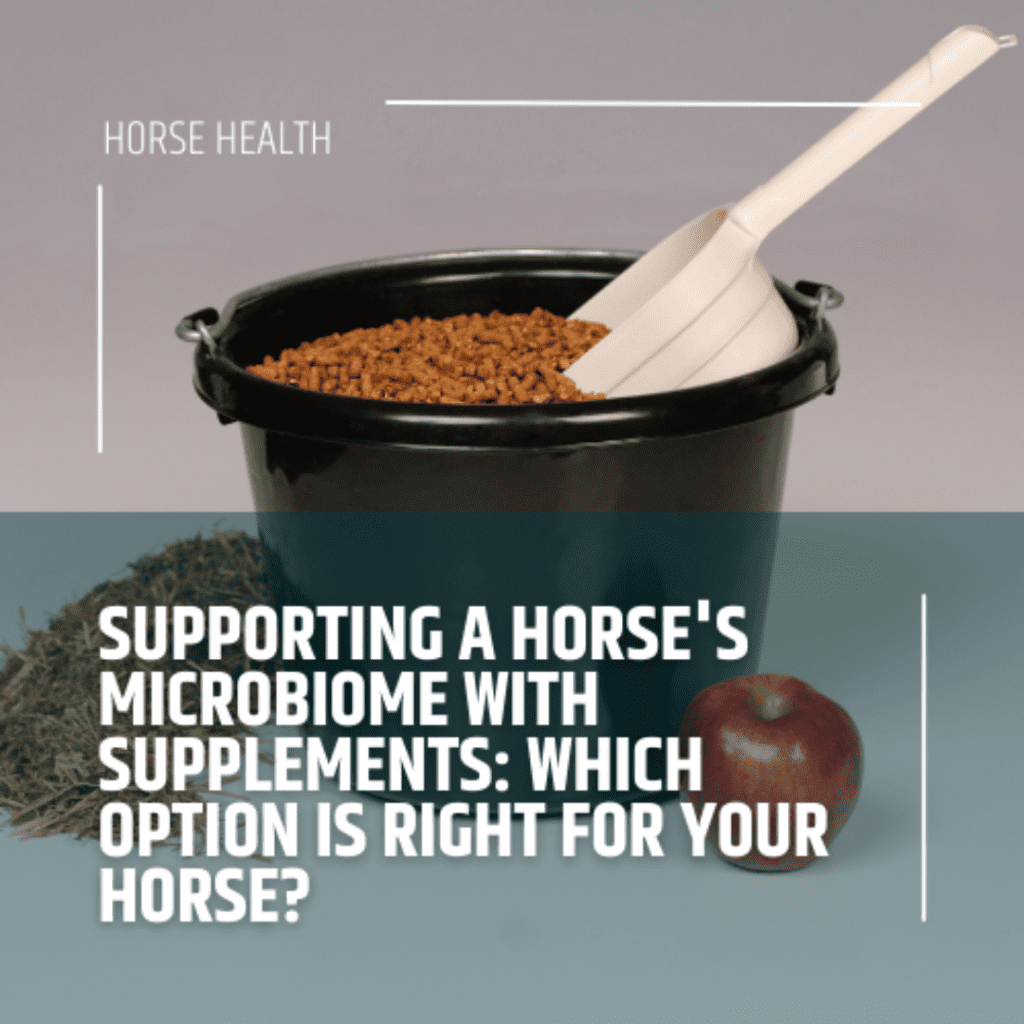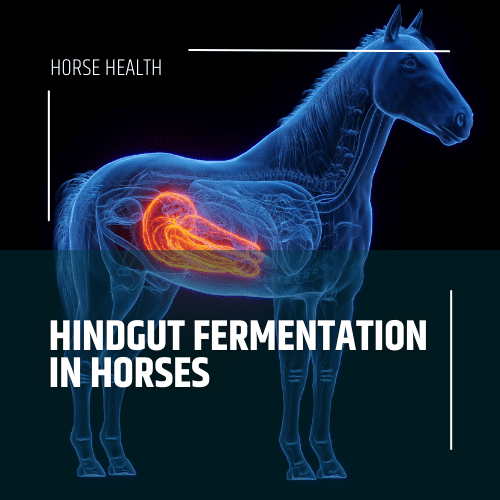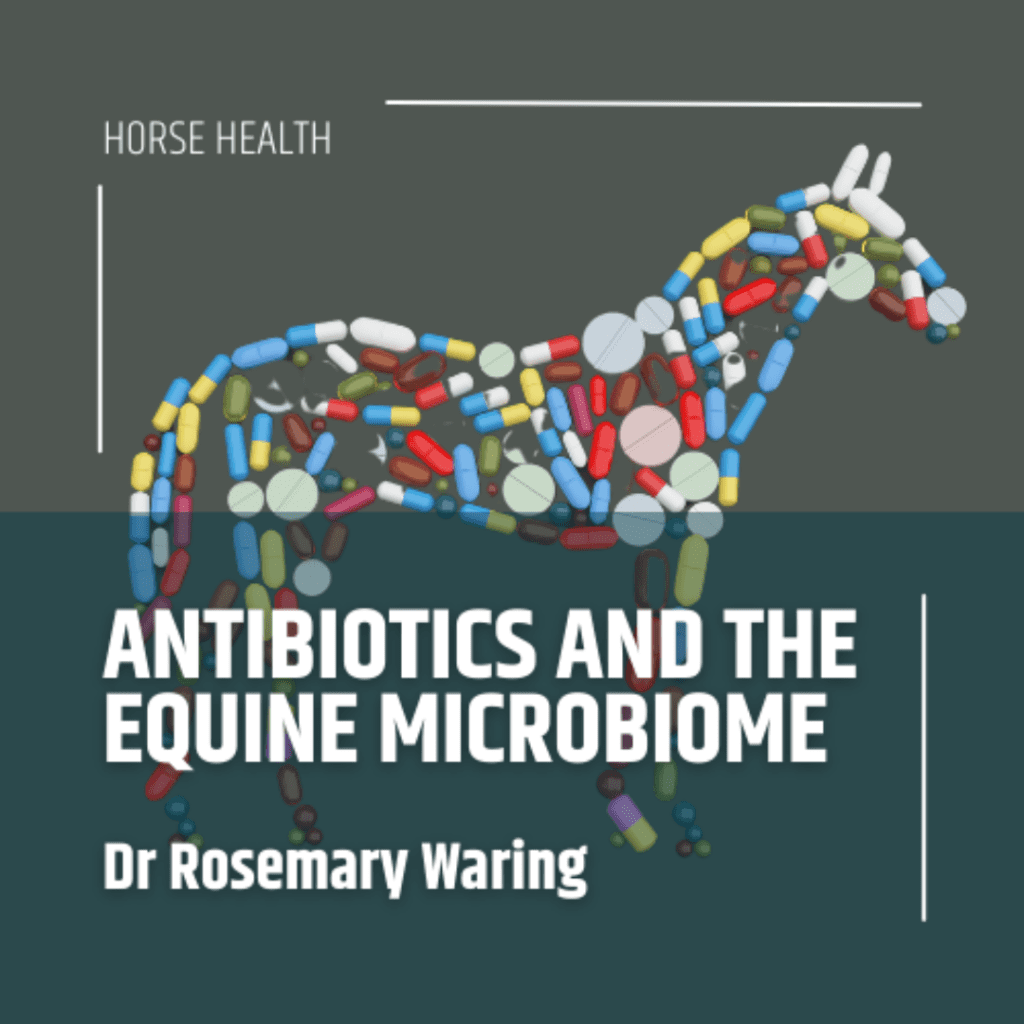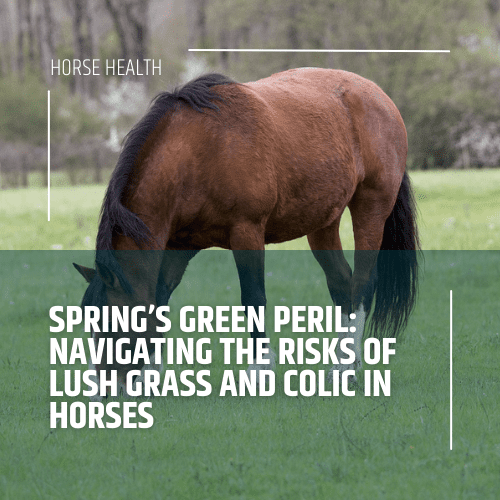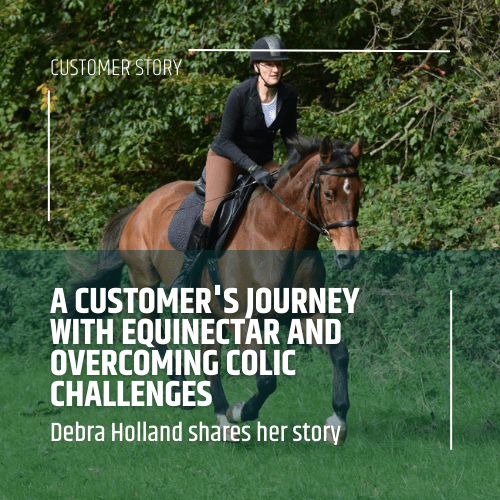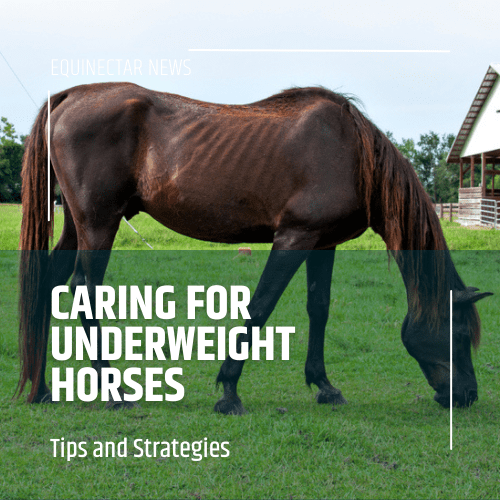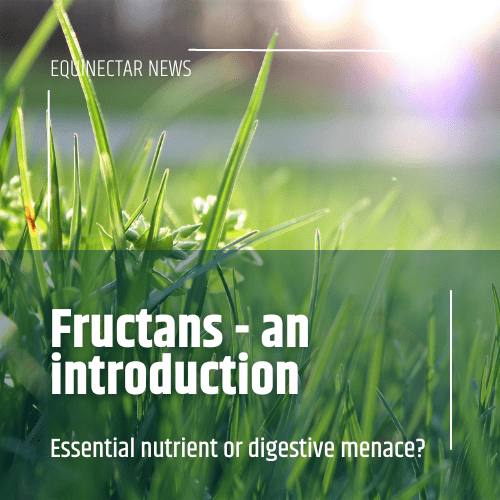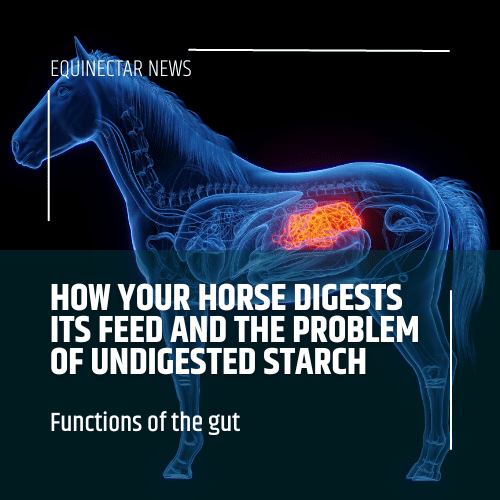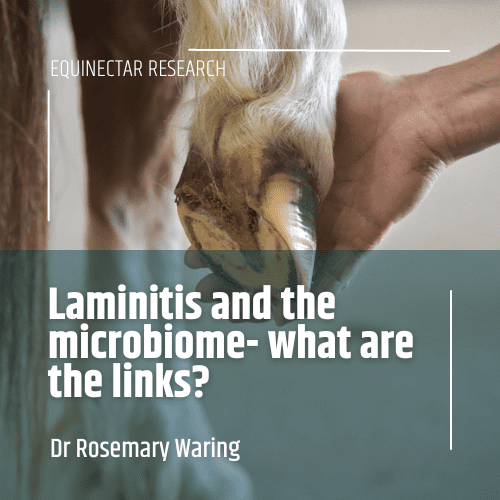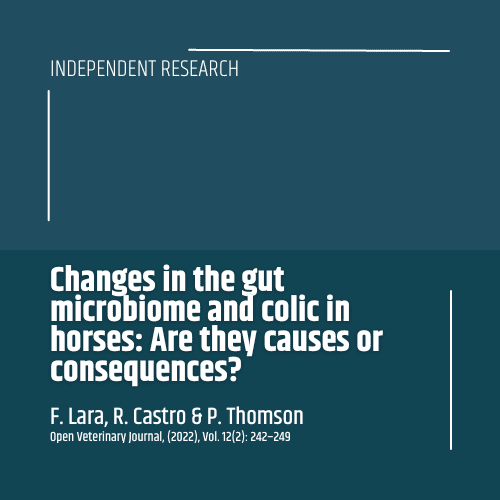Supporting a horse’s microbiome with supplements: which option is right for your horse?
There are so many supplements available to horse owners that claim to support the hindgut microbiome. How effective are they? Let’s explore the main types of supplements used and what the scientific literature says.
Supporting a horse’s microbiome with supplements: which option is right for your horse? Read More »

